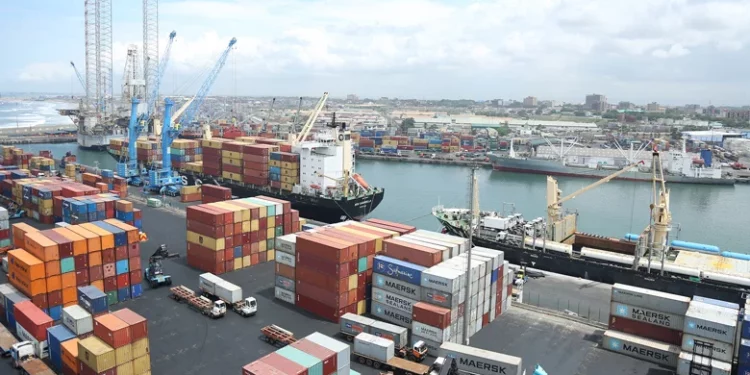Africa Trade Ranking: Ghana slips to 5th place in Stanbic Bank Africa Trade Barometer
Ghana, once a rising star in Africa’s trade landscape, has experienced a decline in its trade ranking, according to the latest Stanbic Bank Africa Trade Barometer (SB ATB) report. The nation’s overall position has fallen from second place in September 2022 to fifth place, reflecting a shift in trade dynamics.
This shift can be partially attributed to a drop in the SB Quantitative Trade Barometer (QTB) ranking, which slipped from second to fifth place during the same period. While Ghana made some progress in the SB STB ranking, moving from tenth to seventh place, it was insufficient to maintain its overall standing relative to other markets.
One distinguishing feature of Ghana’s trade attractiveness is its heavy reliance on merchandise trade, constituting 44 percent of its GDP in 2022. This figure stands out when compared to other markets; however, the country faces formidable challenges. High interest rates and inflation, primarily influenced by global factors, have cast a shadow on its tradability and overall attractiveness.
On the business confidence front, only a quarter of surveyed business leaders express optimism about the medium-term prospects of Ghana’s economy. This results in a business confidence score of 47, which falls below the SB ATB average of 58. Factors contributing to this pessimism include declining macroeconomic growth forecasts. Real GDP is expected to plummet to 1.6 percent in 2023 from 3.2 percent in 2022, primarily due to fiscal austerity measures and inflationary pressures.
Nevertheless, businesses appear more sanguine about their individual prospects, with 86 percent anticipating increased revenues over the next three years. However, opinions regarding the government’s role in supporting cross-border trade activities remain mixed. While infrastructure improvement projects and initiatives to support entrepreneurs have gained traction, negative sentiments persist due to inflation and foreign currency constraints.
In the infrastructure realm, Ghana has seen improvements, moving from seventh to fifth place among SB STB markets, notably driven by government efforts to modernize and expand infrastructure, including expansions at Tema Port. However, persistent electricity supply issues continue to hinder business operations.
The country’s trade openness index has seen a slight uptick from 48 in September 2022 to 52, maintaining its seventh position among SB ATB markets. The majority of surveyed importers source their inputs from China, while exporters primarily target neighboring West African countries. However, import and export-related taxes remain a significant obstacle to business growth.
Smaller businesses are grappling with access to credit, particularly in the wake of rising monetary policy rates following the COVID-19 pandemic. Many are resorting to credit arrangements with suppliers to navigate the challenging credit landscape.
Ghana, as a signatory to the African Continental Free Trade Area (AfCFTA), has seen improved awareness of AfCFTA among surveyed businesses. This awareness has risen from 35 percent in September 2022 to 53 percent in May 2023, owing to government efforts and the establishment of the National AfCFTA Coordination Office.
In summary, Ghana’s trade landscape, while still holding promise, faces substantial challenges in the form of infrastructure gaps, economic stability concerns, and a cautious business sentiment amidst global economic uncertainties.









